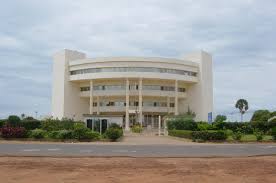
Reporters Without Borders (RSF) calls on the Gambian authorities to not allow violence against journalists to go unpunished and, in particular, to investigate the attack on two journalists with the public radio and TV broadcaster GRTS that took place at the funeral of former President Yahya Jammeh’s mother on 5 August.
Jammeh was ousted in January 2017 but the harassment of the media that characterized his years of dictatorial rule has not entirely disappeared from Gambia.
GRTS reporter Louis Mendy said cameraman Modou Ceesay was slapped and punched by when he tried to film the funeral procession in the village of Bujinga and his camera was seized by his assailants, at least one of whom was wearing garments identifying them as members of the former ruling APRC party’s “security.”
Mendy and Ceesay finally managed to get away when their driver arrived in their vehicle. They then filed complaint at a nearby police station.
“The new government’s promises to ensure respect for press freedom must urgently be translated into concrete action, starting with a thorough investigation to identify and punish those responsible for this attack, in order to end the Jammeh era’s old reflexes and systematic attacks on journalists,” said Arnaud Froger, the head of RSF’s Africa desk.
“As long as the feeling of impunity prevails, the attacks will continue and the authorities will not succeed in ensuring a safe environment for journalists.
In a statement about the attack, the Gambian Press Union (GPU) called on the police to “investigate and bring the perpetrators to justice” and called on “party leaders to educate and sensitise their supporters to understand that journalists are not their enemy.”
The police and political party supporters have posed the biggest threat to press freedom since Jammeh’s departure, the GPU said. While covering a protest on 18 June, Home Digital FM manager Pa Modou Bojang was beaten by police officers who expressed nostalgia for the Jammeh era.
This was just five months after Bojang returned from nine years in exile to escape the dictatorship.
Before leaving, he was arrested and tortured for three weeks in 2008. At an event to mark World Press Freedom Day on 3 May, then information and communication minister Demba Ali Jawo said: “Media freedoms and setting of standards are however meaningless if impunity continues. One way of ensuring that the media and media workers are protected is by ensuring justice and the rule of law.”
Gambia is ranked 122nd out of 180 countries in RSF’s 2018 World Press Freedom Index, 21 places higher than in 2017. This was the world’s biggest rise in the 2018 index.
